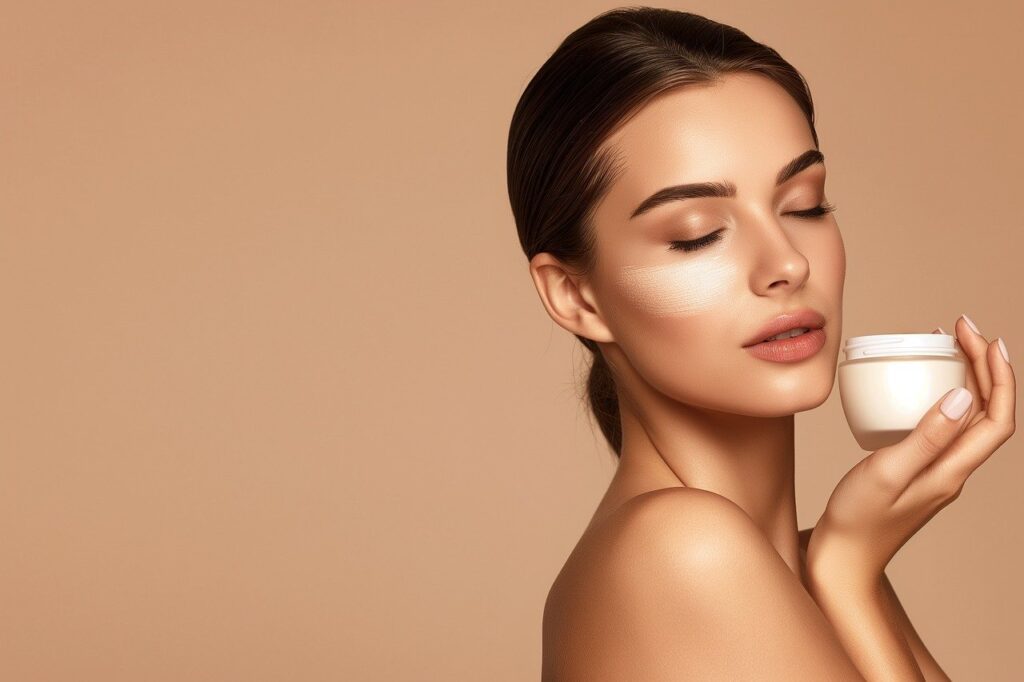Based on dermatologists’ advice, we compiled the finest face sunscreens suitable for all skin types.
Daily application of sunscreen on your face is crucial for shielding your skin from the sun’s harmful rays, as advised by dermatologists. Neglecting this routine may lead to short- and long-term damage, even when indoors near windows or using devices emitting blue light. Dr. Corey L. Hartman emphasizes the significance of sunscreen, alongside antioxidants and retinol, as essential components of skincare. To aid in selecting the appropriate face sunscreen, insights from nine dermatologists were gathered, alongside recommendations from NBC Select editors.
How we picked the best face sunscreens
We selected the best face sunscreen by consulting dermatologists and considering factors such as broad-spectrum protection, SPF rating, skin type compatibility, ingredients, and customer reviews. Additionally, we assessed the sunscreen’s effectiveness, texture, and ease of application to ensure optimal performance and user experience.
Best splurge sunscreen: SkinMedica Total Defense + Repair SPF 34 Sunscreen
Best budget-friendly sunscreen: Coppertone Face Sunscreen SPF 30
Best sunscreen for sensitive skin: Isdin Eryfotona Actinica Mineral Sunscreen SPF 50+
Best sunscreen lotion: Cerave AM Facial Moisturizing Lotion SPF 30
Best sunscreen gel: Supergoop! Unseen Sunscreen SPF 40
Best sunscreen for acne-prone skin: Neutrogena Clear Face Liquid Lotion Sunscreen SPF 50
Best sunscreen for oily skin: Eucerin Oil Control Sunscreen SPF 50
Best sunscreen for combination skin: Starface Clear As Day SPF 46
Best powder sunscreen: Colorescience Sunforgettable Total Protection Brush-On Shield SPF 50
Best sunscreen stick: Vertra Invisible Face Stick SPF 45
Best sunscreen compact: Avene Mineral Tinted Compact SPF 50
What is SPF and why is it important?
As per the American Academy of Dermatology and dermatologists consulted, it’s imperative for everyone, irrespective of skin tone, to apply sunscreen. Continuous exposure to UV rays heightens the risk of various skin cancers, including keratinocyte cancers and melanoma, emphasizes Dr. Amy McMichael, a board-certified dermatologist and professor at Wake Forest University School of Medicine.
What type of sunscreen is best for your face?
According to our experts and the American Academy of Dermatology, it’s recommended to use sunscreen with an SPF 30 rating or higher, as it can block up to 97% of UVB rays responsible for sunburns and skin cancer. Broad-spectrum sunscreens, which protect against both UVA rays (aging the skin) and UVB rays, are preferred. Additionally, consider sunscreens that offer blue light protection, beneficial for prolonged computer screen exposure. Sunscreens in lotion, stick, cream, and gel forms are more effective as they allow for better regulation of application, unlike spray sunscreens, which may not apply evenly.
How to shop for face sunscreen based on your skin type
Various sunscreen options are available for different skin types, such as acne-prone, oily, and dry. These products are offered in various formulations like lotions, creams, and powders. When shopping for face sunscreen, experts recommend considering factors such as broad-spectrum sun protection, ingredients, and formulation.
Your specific skin type plays a crucial role in determining the most suitable sunscreen for you. While active ingredients shield the skin from harmful UV rays, inactive ingredients dictate how your skin will react to the product. Here’s a breakdown of how to select the best sunscreen based on your skin type:
Dry skin: Opt for sunscreens containing humectants like hyaluronic acid and ceramides, as well as emollients like coconut, jojoba, and mineral oils to hydrate the skin. Look for occlusives such as glycerin and dimethicone to seal in moisture.
Oily skin: Choose oil-free sunscreens with oil-absorbing ingredients like silica gel. Consider sport formulations, gels, or lotions with matte finishes containing silica gel to absorb excess oil.
Sensitive skin: For sensitive skin, opt for simpler formulas to minimize irritation. Avoid potential irritants like fragrances, botanical extracts, and essential oils. Stick to mineral sunscreens containing zinc oxide and/or titanium dioxide, which are less likely to cause reactions.
Acne-prone skin: Look for fragrance-free sunscreens labeled noncomedogenic to prevent pore clogging and exacerbating breakouts. Lightweight formulas like lotions, gels, and powders are preferable over thicker creams to avoid feeling heavy on the skin.

